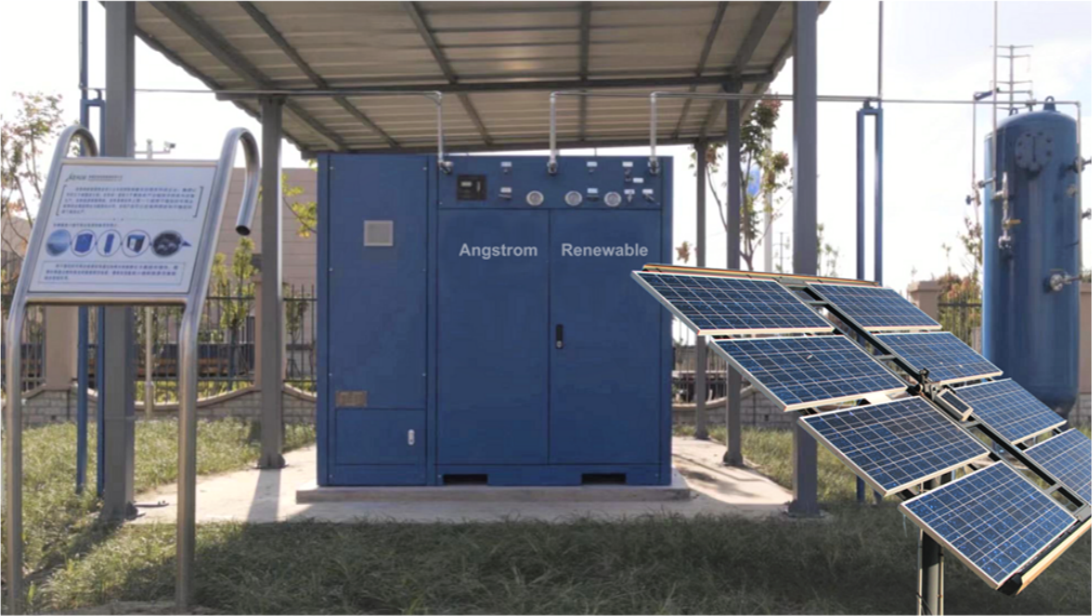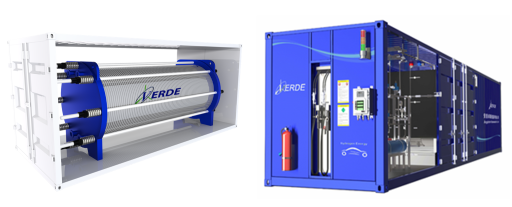The United Nations Development Program (UNDP) successfully completed the Acceptance Test of Verde’s Solar-to-Hydrogen Micro-grid Project
Boston, MA, United States
In July 2021, the United Nations Development Program (UNDP) successfully completed the acceptance test of the hydrogen-based micro-grid project. This project was designed and constructed by the Verde team. It established a hydrogen-based renewable energy storage system to break through the bottleneck associated with the utilization of unstable renewable energy (such as solar and wind power) and made a big stride forward to the hydrogen-based community.

Commercialized megawatt-scale containerized water-electrolysis hydrogen generators, skid-mounted hydrogen refueling stations, and big data platforms that are developed by Verde are making it feasible for establishing and implementing hydrogen energy communities or hydrogen cities. The success of this project also proves the possibility of “Hydrogen Energy Communities” or “Hydrogen Cities”. In such a scenario, hydrogen would be the critical medium in bringing together renewable energy (solar, wind, hydro, etc.), power, heat and utilities, and the ability for grid peak-shift. Additionally, hydrogen can be used as a backup power source, as well as fuel for Hydrogen Fuel Cell Vehicles (FCVs). The ultimate goal of the “Hydrogen Energy Communities'' is to take advantage of hydrogen as a clean, zero-emission energy source to achieve sustainable development, as well as carbon neutrality. To date, Verde has designed and constructed solar/wind hydrogen-based energy storage micro-grid projects in Massachusetts, USA and Jiangsu, China.
